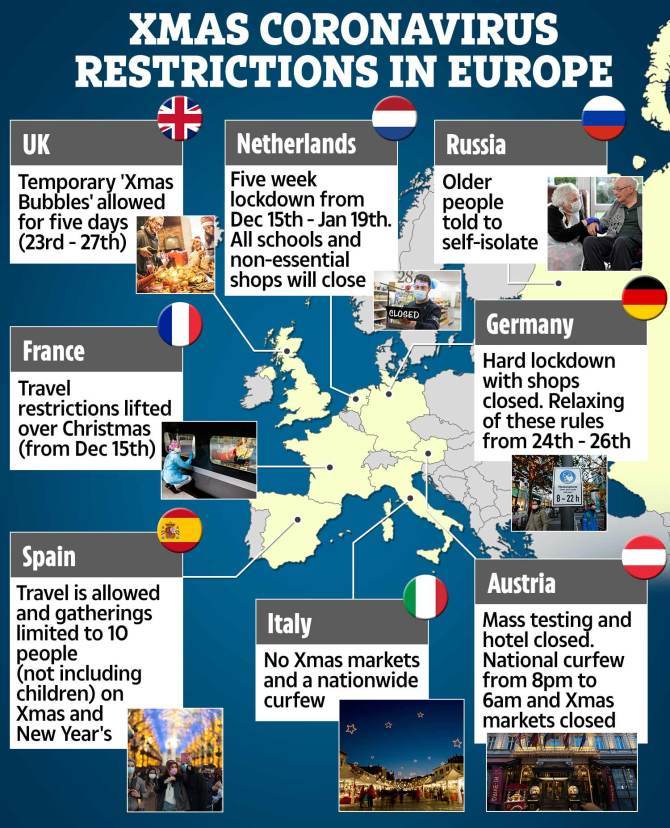DON’T put your family at risk this Christmas, a top doctor has warned.
Dr Chaand Nagpaul, chair of council at the British Medical Association (BMA), said giving a relative Covid-19 would be “the worst Christmas present”.
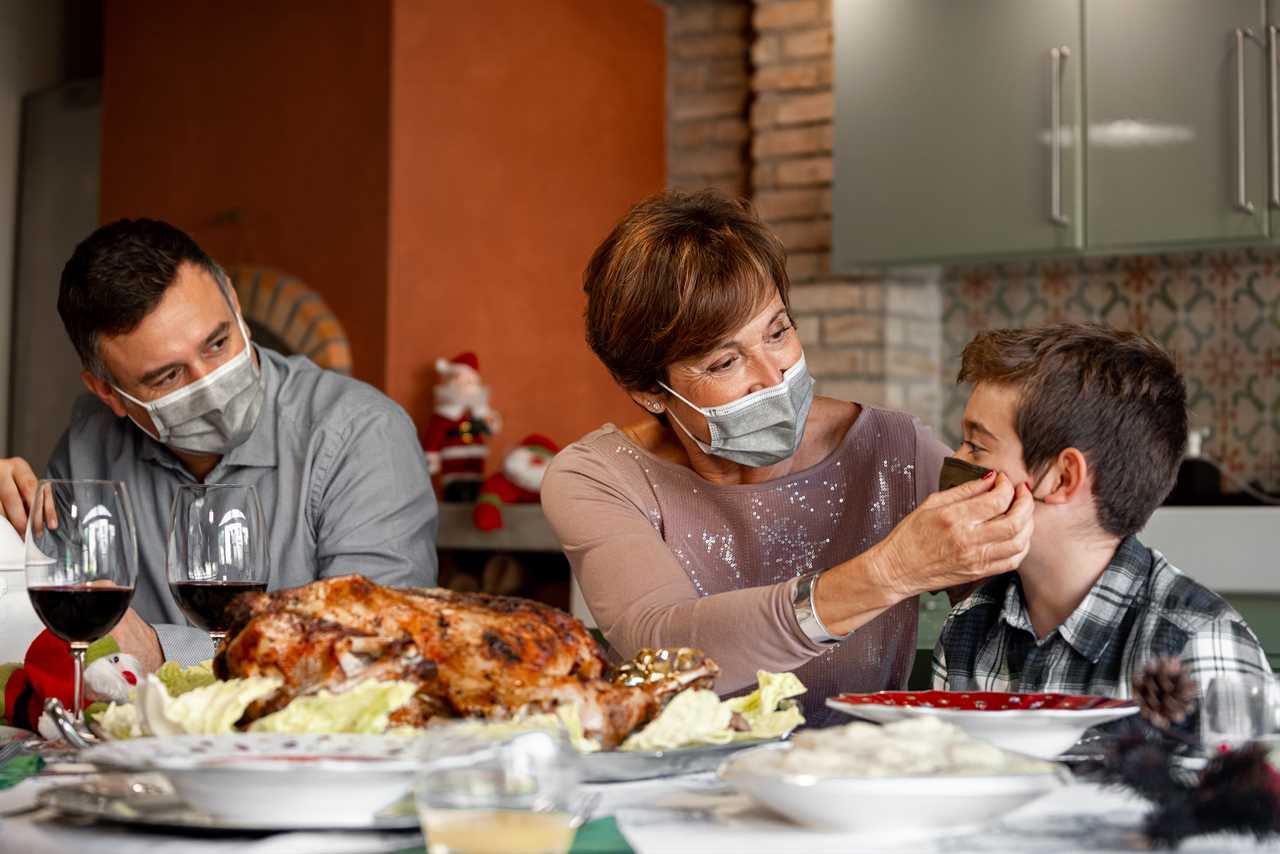
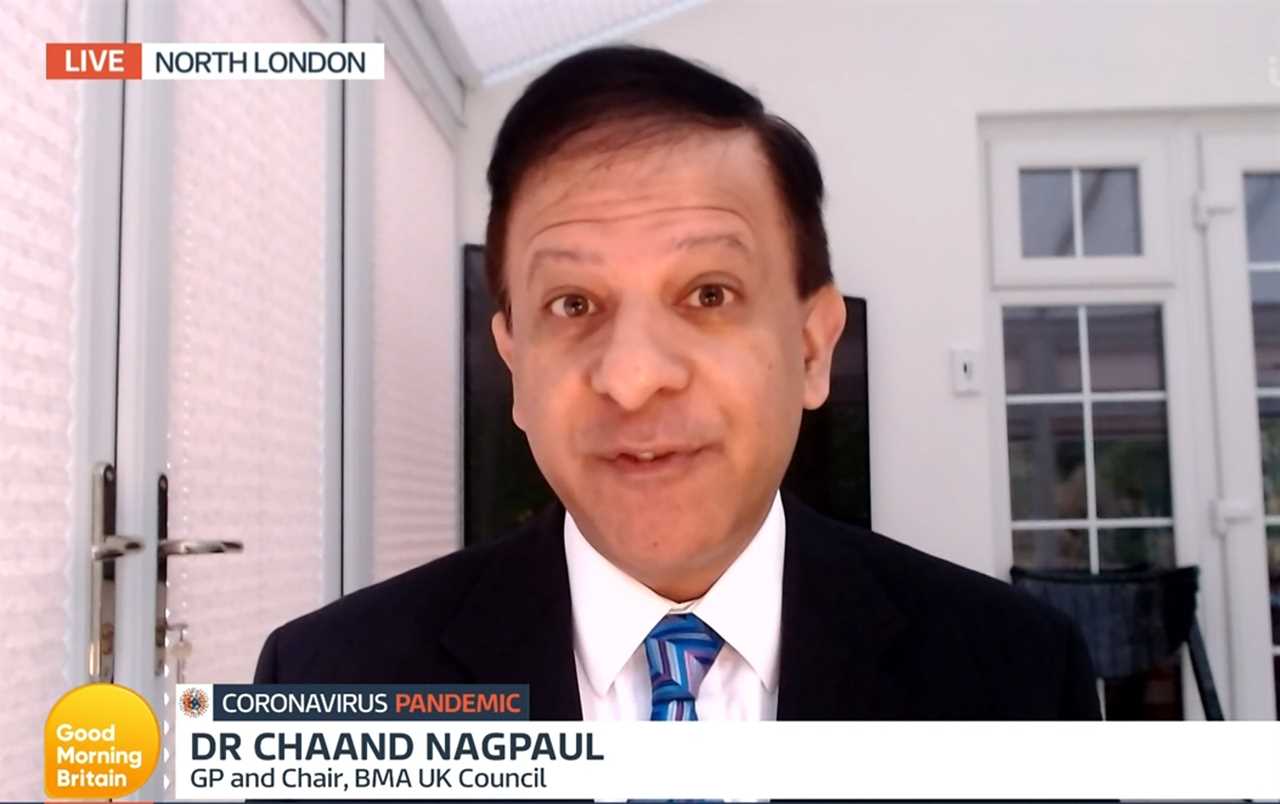
The BMA is urging for the Government to review it’s relaxation of the rules over the festive period – just seven days before Britons are allowed to bubble up with other households.
It said festivities should not go ahead because “the virus remains out of control”.
Data shows new daily Covid cases yesterday were up 50 per cent in a week; 18,450 infections were announced yesterday, and 506 deaths.
The number of people admitted to hospital per day is creeping up too – 1,600 on average compared to 1,400 two weeks ago.
Dr Nagpaul said: “Everyone wants to be able to share this time with family and friends but we are not heading for a normal Christmas.
“We are facing a Christmas with Covid infection rates still very high and evidence that the most recent lockdown managed only to stabilise infection rates, which have since risen significantly.
“Whilst we understand that many families will naturally want to spend time together, we know that no one will want to put a family member or friend at risk from contracting the virus – that would be a terrible Christmas present and so we would urge everyone to do all they can to avoid this.”
Dr Nagpaul said an “inevitable third wave” will be “disastrous” for the NHS in the New Year.
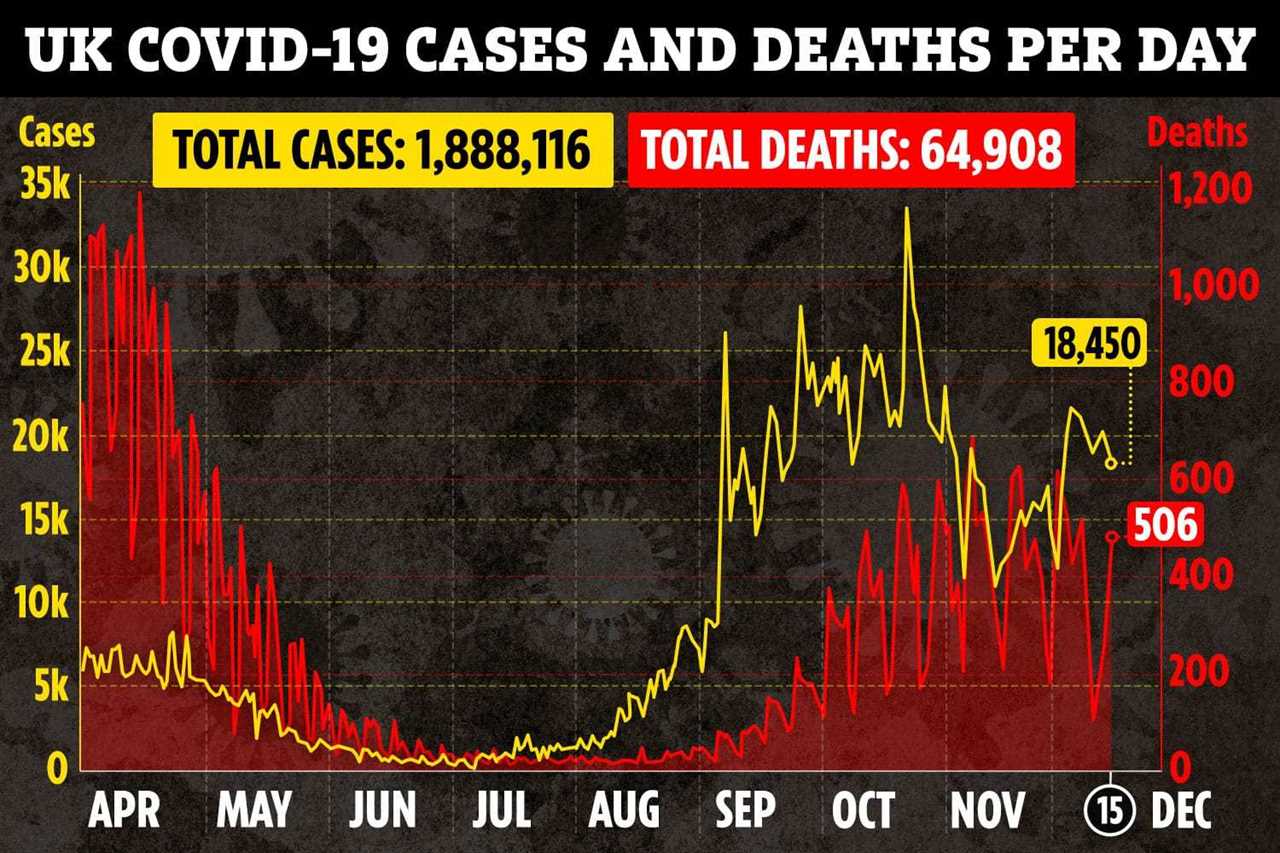
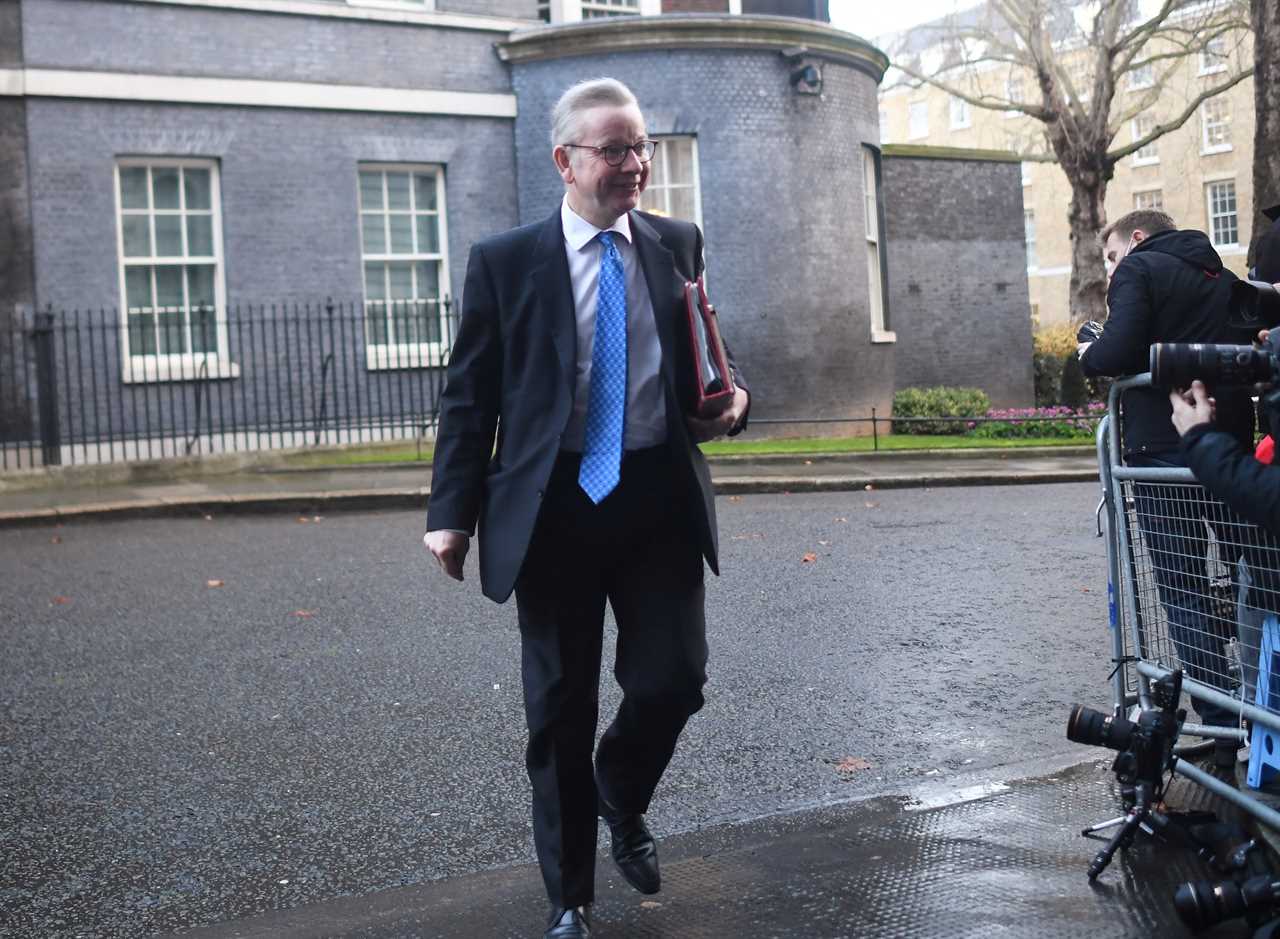
He said: “The health service and its staff are already being stretched to the limit as they care for those with Covid as well as trying to treat the tens of thousands of patients who have been waiting months for surgery.
“Add to this the usual winter pressures and the fact we have less beds than this time last year and we have a recipe for catastrophe.”
Dr Nagpaul also said the Government must consider what needs to be done “when the tinsel is tidied away”.
He said allowing people to still mix socially in restaurants and pubs and going to work doesn’t work to keep the virus suppressed.
Christmas at risk
The Government has allowed three households to join together for a period of five days (December 23 to 27) after a difficult year.
Prime Minister Boris Johnson is coming under pressure to scrap allowance of Christmas bubbles because of the disastrous consequences it could have.
Two medical journals – the British Medical Journal (BMJ) and the Health Service Journal (HSJ) – said family get-togethers would “cost many lives”.
Linda Bauld, professor of public health at the University of Edinburgh, said the easing was a “bad idea” and that people needed to be “incredibly cautious”.
“I think, to avoid the preventable deaths that we’re going to have in January as a result of this, we shouldn’t be doing it, but if we do do it then I think we need to do it in the most modest way possible,” she told BBC Breakfast.
It comes after Sir Keir urged Boris Johnson to call an emergency meeting of the Government’s top-level Cobra committee yesterday.
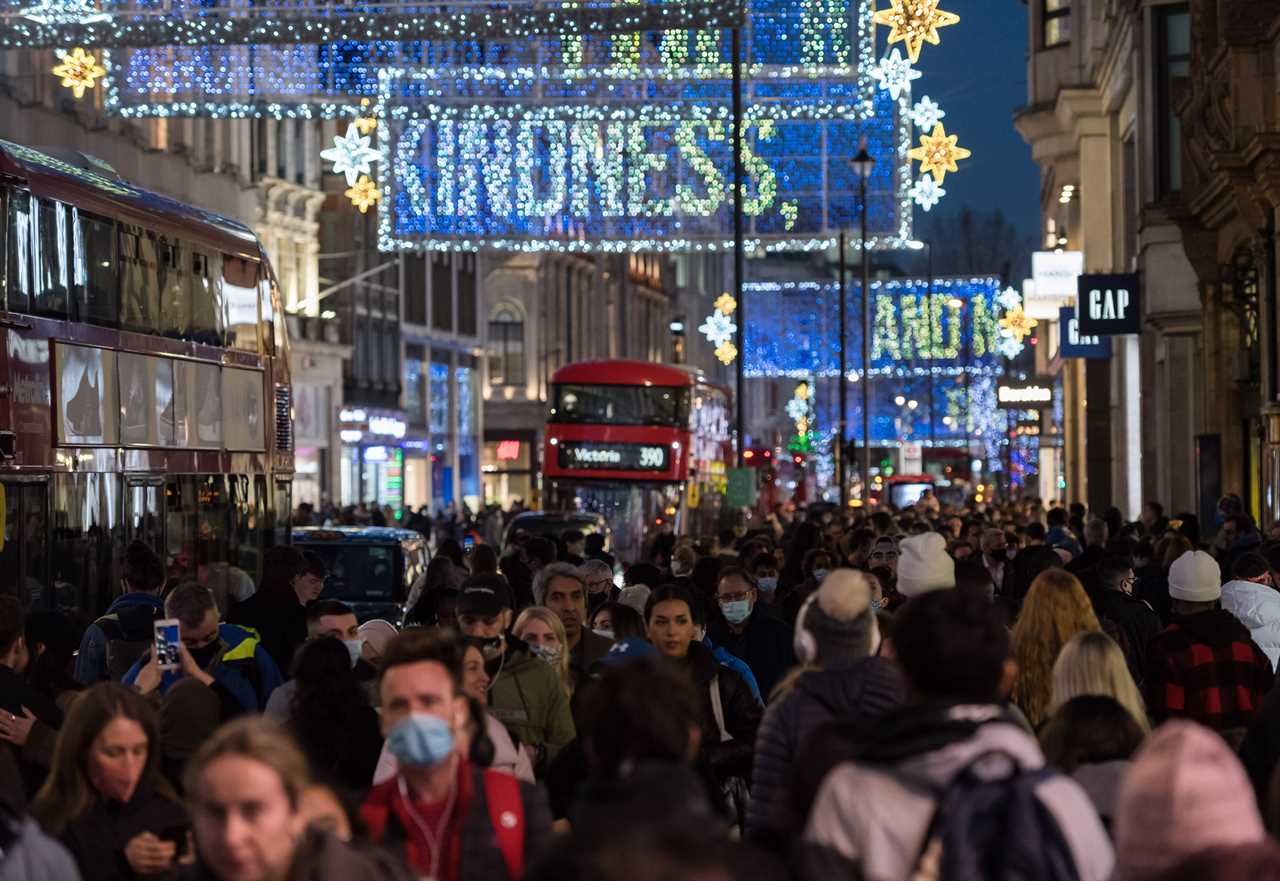
In a letter to the Prime Minister, the Labour leader accused ministers of having “lost control of infections” and warned that “the situation has clearly taken a turn for the worse since the decision about Christmas was taken”.
“If you conclude with Government scientists that we need to take tougher action to keep people safe over Christmas, then you will have my support,” Sir Keir said.
Cabinet Office minister Michael Gove is continuing talks over the plans with leaders of the devolved administrations today.
Government sources said the four UK nations may take differing approaches, but insisted there would be no change in the law in England.
Leaders will continue discussions on strengthening warnings, including advising people to reconsider the risks of whether they should see elderly and clinically vulnerable relatives.
It’s like to spark more chaos with only a week to go until the plans are supposed to come into place.
A senior ministers suggested today the Government will give the green light for Christmas bubbles – but caused confusion by saying Britons should instead “make Easter the new Christmas”.
Communities Secretary Robert Jenrick warned people would need to think carefully if they wanted to risk large family gatherings, pointing to the example of the United States where there had been a rise in cases following the Thanksgiving holiday.

